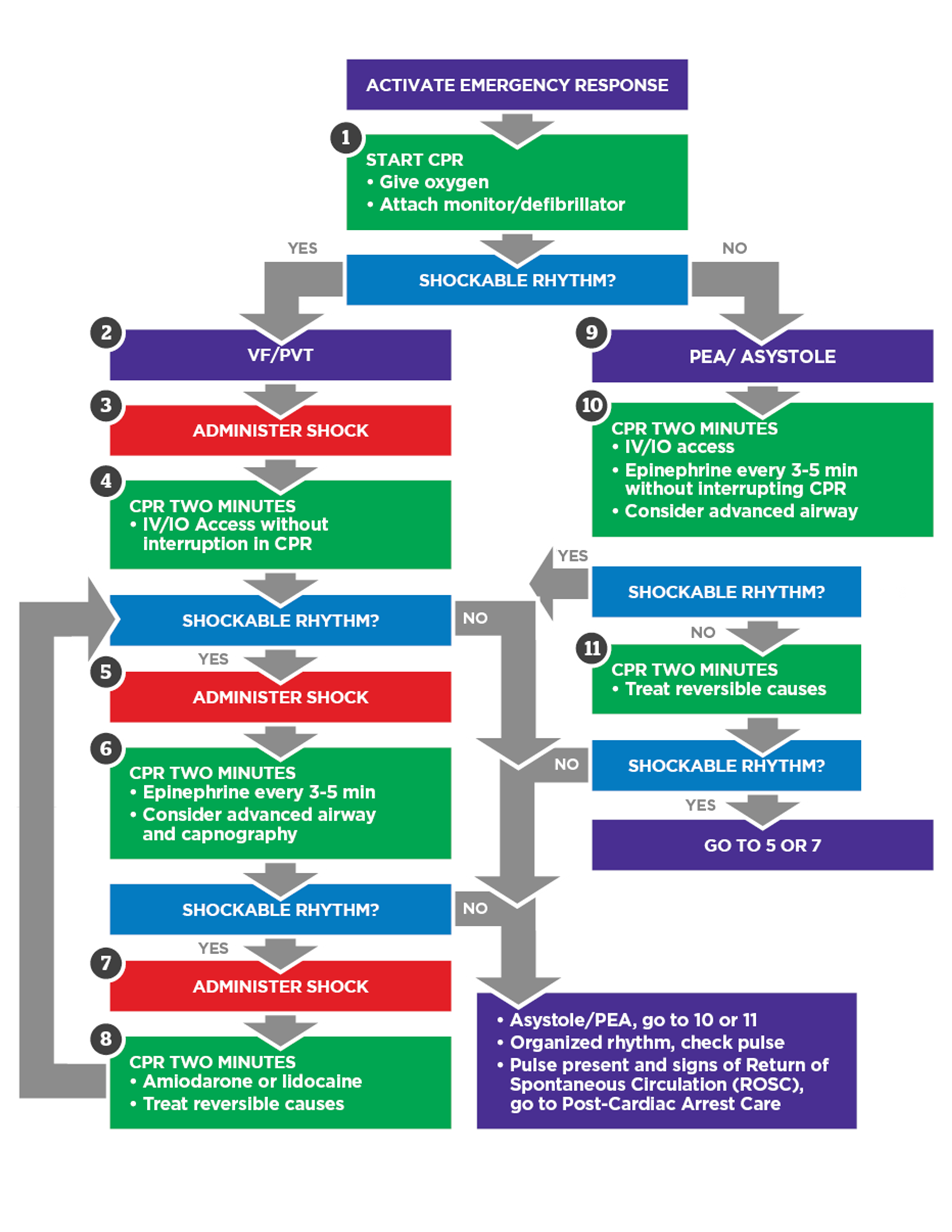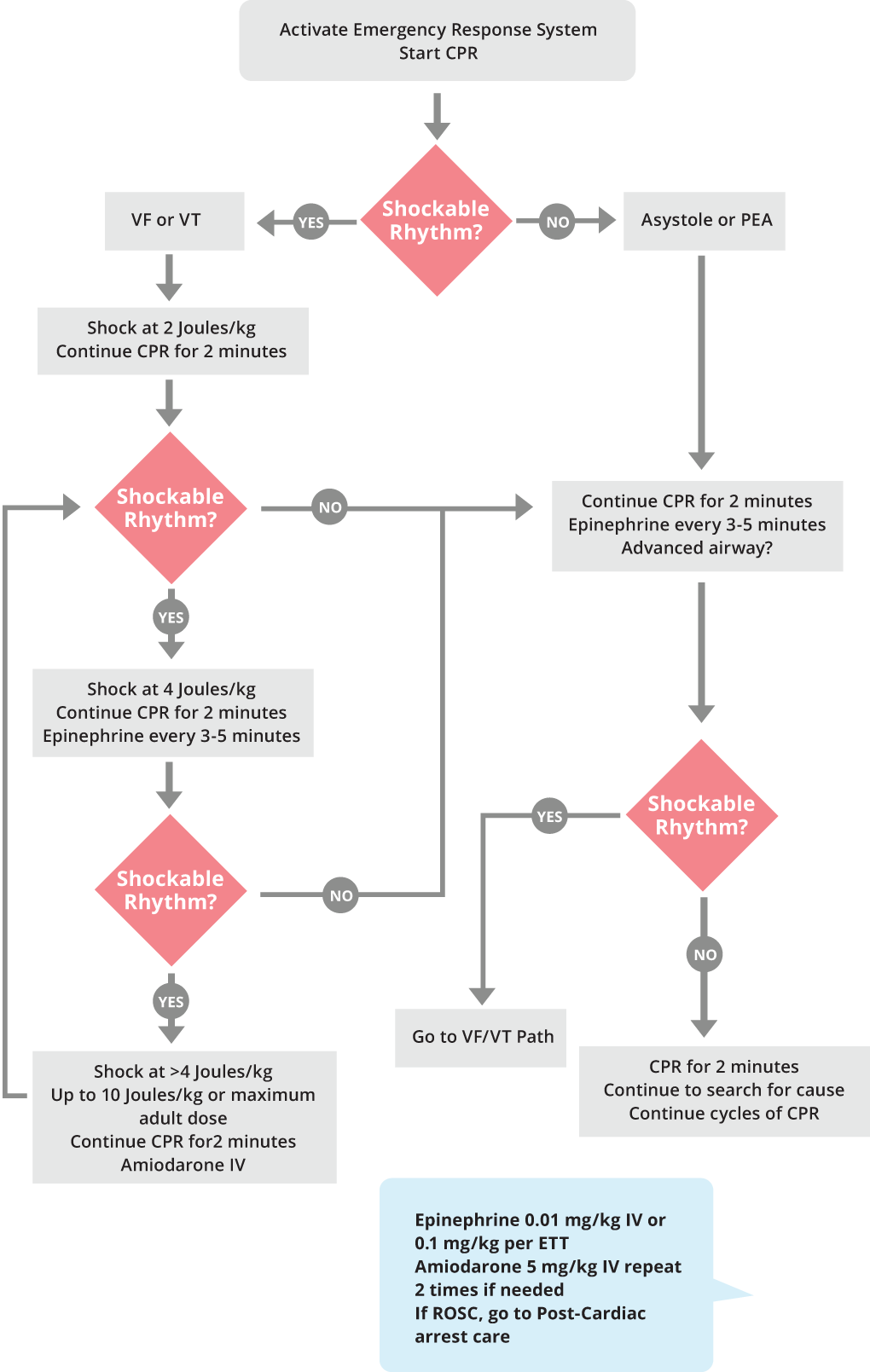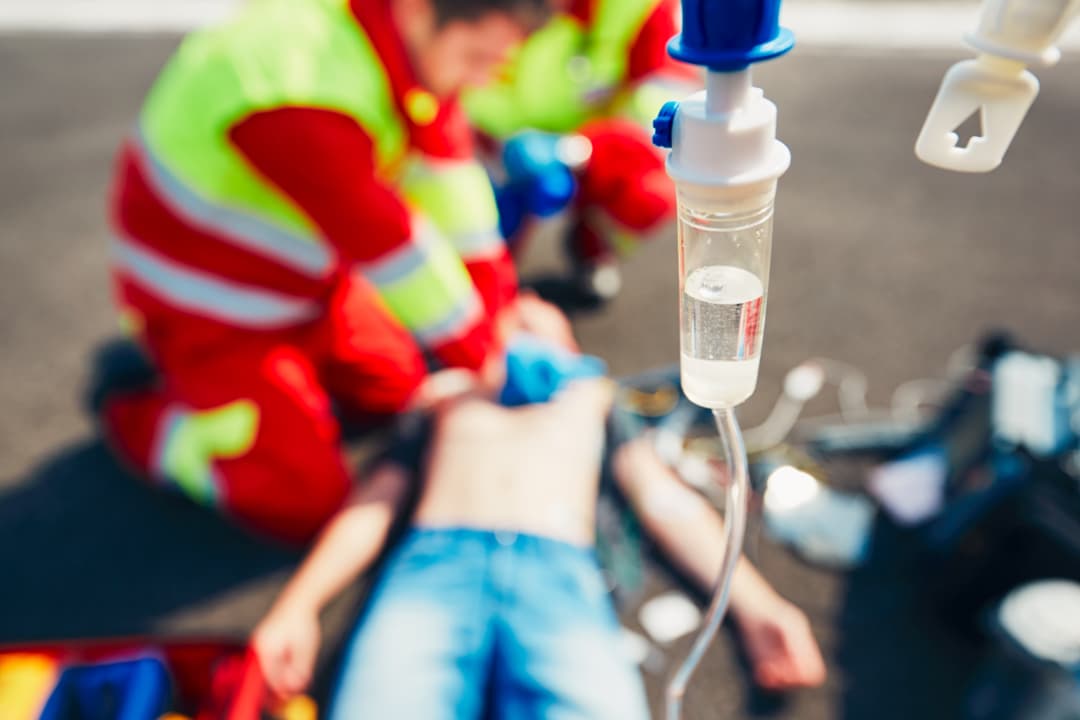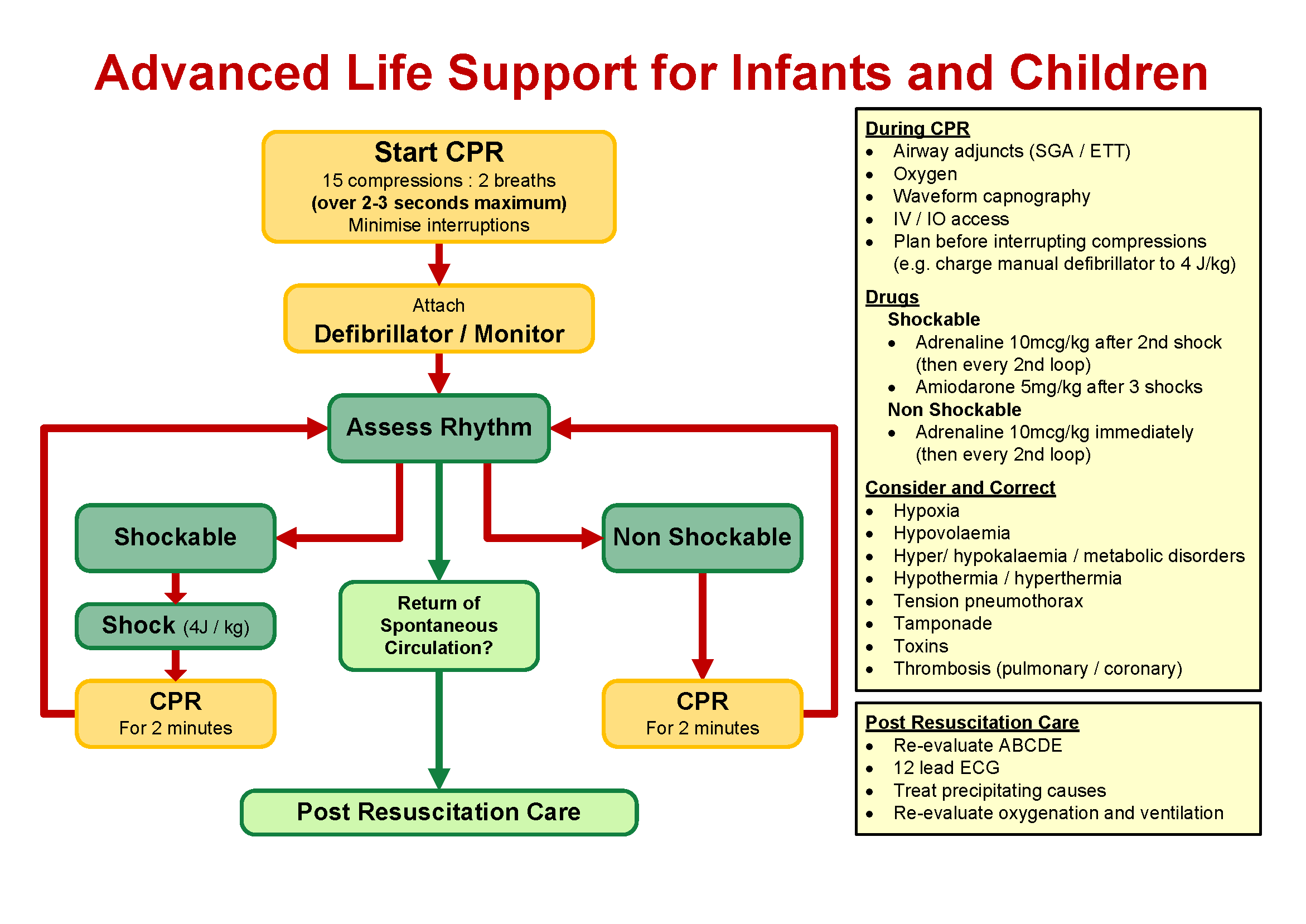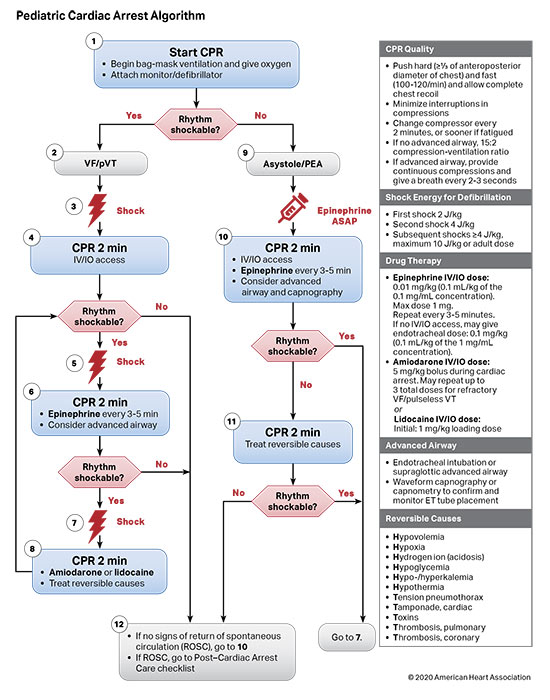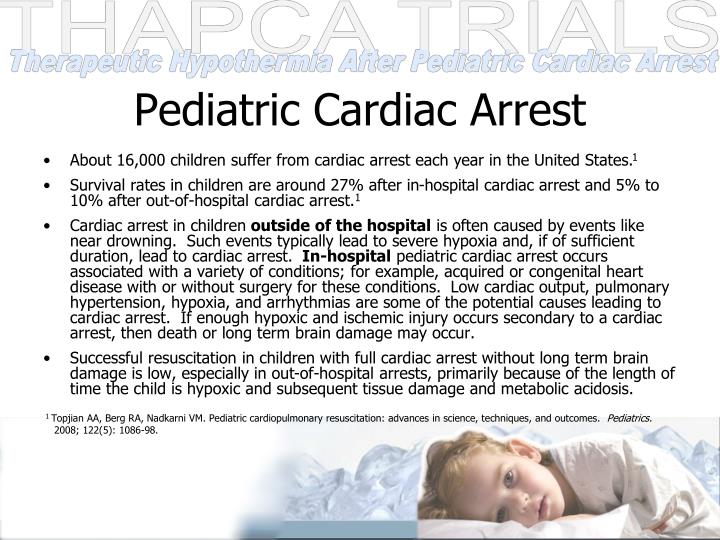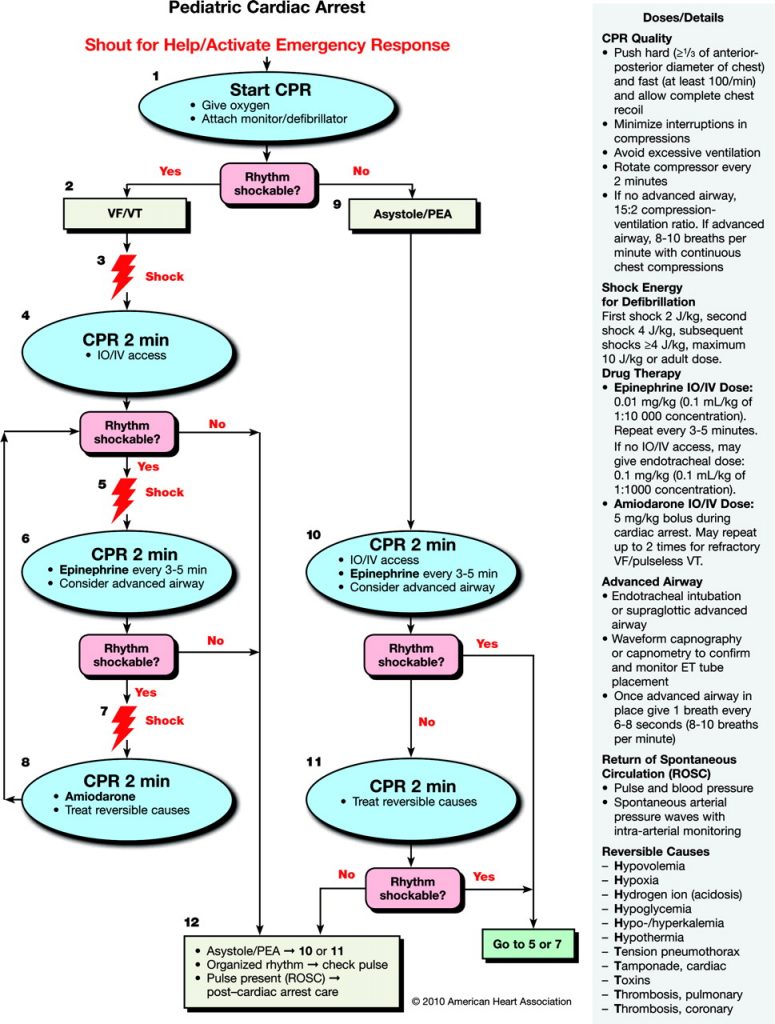Cardiac Arrest Pediatric - Epidemiology of pediatric cardiac arrest • relatively uncommon compared with adult cases • ~16,000 children in the united states. We emphasize the importance of preparedness for pediatric cardiac arrest and offer strategies for the optimal recognition and care. Therefore, it is essential to understand the causes, risk factors, and management of pediatric cardiac arrest to improve outcomes for afected children.
Epidemiology of pediatric cardiac arrest • relatively uncommon compared with adult cases • ~16,000 children in the united states. We emphasize the importance of preparedness for pediatric cardiac arrest and offer strategies for the optimal recognition and care. Therefore, it is essential to understand the causes, risk factors, and management of pediatric cardiac arrest to improve outcomes for afected children.
Therefore, it is essential to understand the causes, risk factors, and management of pediatric cardiac arrest to improve outcomes for afected children. Epidemiology of pediatric cardiac arrest • relatively uncommon compared with adult cases • ~16,000 children in the united states. We emphasize the importance of preparedness for pediatric cardiac arrest and offer strategies for the optimal recognition and care.
Management Of Cardiac Arrest PALS Online Handbook
Epidemiology of pediatric cardiac arrest • relatively uncommon compared with adult cases • ~16,000 children in the united states. Therefore, it is essential to understand the causes, risk factors, and management of pediatric cardiac arrest to improve outcomes for afected children. We emphasize the importance of preparedness for pediatric cardiac arrest and offer strategies for the optimal recognition and care.
Pediatric Cardiac Arrest Sequence ACLS Medical Training
We emphasize the importance of preparedness for pediatric cardiac arrest and offer strategies for the optimal recognition and care. Therefore, it is essential to understand the causes, risk factors, and management of pediatric cardiac arrest to improve outcomes for afected children. Epidemiology of pediatric cardiac arrest • relatively uncommon compared with adult cases • ~16,000 children in the united states.
OCFD reviews pediatric cardiac arrest training, recertifies EMTs and
We emphasize the importance of preparedness for pediatric cardiac arrest and offer strategies for the optimal recognition and care. Therefore, it is essential to understand the causes, risk factors, and management of pediatric cardiac arrest to improve outcomes for afected children. Epidemiology of pediatric cardiac arrest • relatively uncommon compared with adult cases • ~16,000 children in the united states.
Part 11 Pediatric Basic Life Support and Cardiopulmonary Resuscitation
We emphasize the importance of preparedness for pediatric cardiac arrest and offer strategies for the optimal recognition and care. Therefore, it is essential to understand the causes, risk factors, and management of pediatric cardiac arrest to improve outcomes for afected children. Epidemiology of pediatric cardiac arrest • relatively uncommon compared with adult cases • ~16,000 children in the united states.
Pediatric Cardiac Arrest My EMS ConEd
Therefore, it is essential to understand the causes, risk factors, and management of pediatric cardiac arrest to improve outcomes for afected children. We emphasize the importance of preparedness for pediatric cardiac arrest and offer strategies for the optimal recognition and care. Epidemiology of pediatric cardiac arrest • relatively uncommon compared with adult cases • ~16,000 children in the united states.
Cardiac Arrest Paediatric
We emphasize the importance of preparedness for pediatric cardiac arrest and offer strategies for the optimal recognition and care. Therefore, it is essential to understand the causes, risk factors, and management of pediatric cardiac arrest to improve outcomes for afected children. Epidemiology of pediatric cardiac arrest • relatively uncommon compared with adult cases • ~16,000 children in the united states.
Part 4 Pediatric Basic and Advanced Life Support American Heart
Epidemiology of pediatric cardiac arrest • relatively uncommon compared with adult cases • ~16,000 children in the united states. Therefore, it is essential to understand the causes, risk factors, and management of pediatric cardiac arrest to improve outcomes for afected children. We emphasize the importance of preparedness for pediatric cardiac arrest and offer strategies for the optimal recognition and care.
PPT Therapeutic Hypothermia After Pediatric Cardiac Arrest (THAPCA
Epidemiology of pediatric cardiac arrest • relatively uncommon compared with adult cases • ~16,000 children in the united states. Therefore, it is essential to understand the causes, risk factors, and management of pediatric cardiac arrest to improve outcomes for afected children. We emphasize the importance of preparedness for pediatric cardiac arrest and offer strategies for the optimal recognition and care.
Pediatric cardiac arrest algorithm—basic
We emphasize the importance of preparedness for pediatric cardiac arrest and offer strategies for the optimal recognition and care. Epidemiology of pediatric cardiac arrest • relatively uncommon compared with adult cases • ~16,000 children in the united states. Therefore, it is essential to understand the causes, risk factors, and management of pediatric cardiac arrest to improve outcomes for afected children.
Pediatric Cardiac Arrest Algorithm First10EM
Therefore, it is essential to understand the causes, risk factors, and management of pediatric cardiac arrest to improve outcomes for afected children. We emphasize the importance of preparedness for pediatric cardiac arrest and offer strategies for the optimal recognition and care. Epidemiology of pediatric cardiac arrest • relatively uncommon compared with adult cases • ~16,000 children in the united states.
Epidemiology Of Pediatric Cardiac Arrest • Relatively Uncommon Compared With Adult Cases • ~16,000 Children In The United States.
Therefore, it is essential to understand the causes, risk factors, and management of pediatric cardiac arrest to improve outcomes for afected children. We emphasize the importance of preparedness for pediatric cardiac arrest and offer strategies for the optimal recognition and care.
